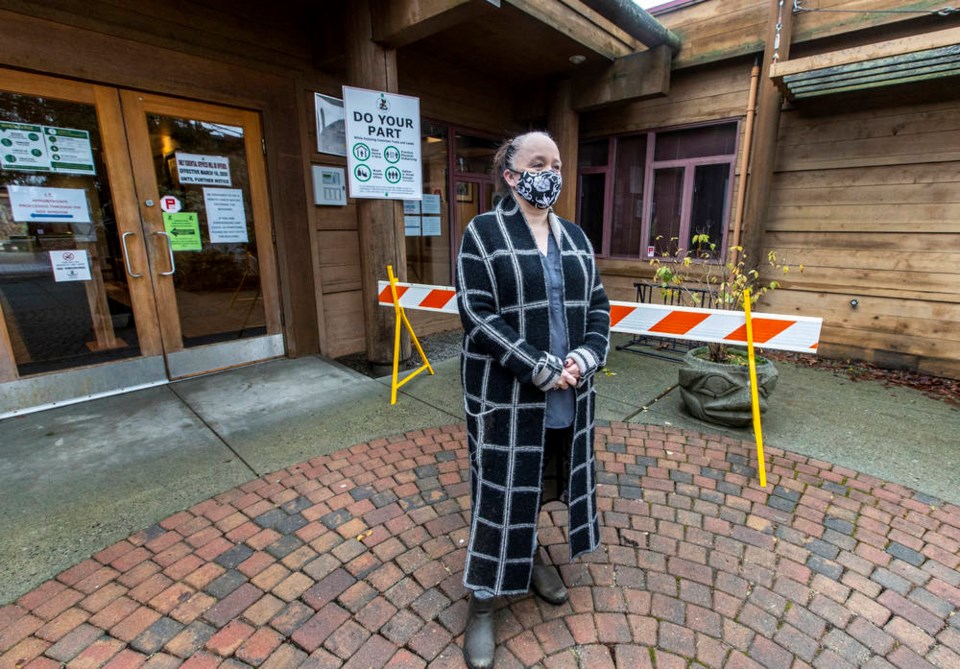A personal commentary by a member of the Cowichan Tribes Chief and Council. Suniimtunaat is her traditional name.
On Jan. 1, Cowichan Tribes had its first reported case of COVID-19. It was not how we wanted to start the first day of the New Year but it was anticipated.
Like the rest of the leaders throughout Canada, our Nation was prepared for the potential infections after the holiday season. For 10 months our leaders, staff and community members worked extremely hard to keep the infection out of our community.
However, understanding our community, the strong family connections and how large our families are, we knew some gathering would be inevitable and that would increase our risk of infection.
In an interview last week to talk about the infection numbers and the shelter-at-home order that our chief and council implemented, I was asked how we feel about Island Health reporting numbers of infections in our community.
At that time we did not have any specific reports of discrimination towards our members, but being a First Nation leader and member who understands reports that trigger racism and discrimination, I informed the reporter I anticipated things would get tough for our members.
I asked in my response for the larger Cowichan Valley community to not judge or assume our members who are at work or shopping are infected. Our members who are to be isolating are following Island Health’s instructions and those who are out in public are safe to be out in public.
I was then asked by the reporter why I anticipated racism towards our members; I explained that experience informed my assumption.
Our members become targets due to non-First Nation’s biases based on stereotypes they have grown up believing about our communities.
History and current events also show that people who are fearful need a “boogy man” to blame for their hardships.
In this case, since Island Health had not specified the Cowichan Valley numbers until now, we anticipated the blame of positive cases in our region would become the fault of the Cowichan Tribes community. We became the “boogy man.”
Since that first interview, I have received many reports and seen many posts from members of our community describing the racist, biased and discriminatory treatment and comments they have been facing since COVID positive cases were reported in our community.
To show my support and let our members know we hear them I posted to my personal Facebook page. The following points I think are worth repeating here.
Ten months ago COVID was brought to Canada by many people, none of them Coast Salish First Nation members.
Not once during this did we look at every non-Indigenous person and assume you had COVID. We did not tell any of you to come back to work or to our businesses when the pandemic is over.
Not once did we comment on any news article about the spread and say: “Oh, those ‘white’ people are spreading it on the Island!”
Like the rest of Canada, we did get upset when we saw reports of gatherings, travel, anti-mask protests, but we did not blame based on race or skin colour.
We felt fear and concern like everyone else; our fear stemmed from our overall concern for our family and friends’ health and safety.
In one of the interviews I had on Jan. 11 to discuss the racism that our community is experiencing, I was asked what would help change this situation.
I first believe reporting of First Nation issues and challenges needs to be done better. This is an issue in itself.
Secondly, in my opinion, non-Indigenous communities need to educate themselves. It has always been the burden of the oppressed to educate their oppressors.
This is an unfair dynamic and does not work.
We know in many cases a potential threat to one’s well-being leads people to act as they would not normally act but in those moments I encourage you to stop and self-assess your behaviour.
Ask questions to better inform yourself about the situation that has caused you concern. Challenge ideals that are leading your response; assess your own biases and recognize and admit when you are wrong and when your actions are harmful.
The change that is needed starts with each individual and is long overdue.



